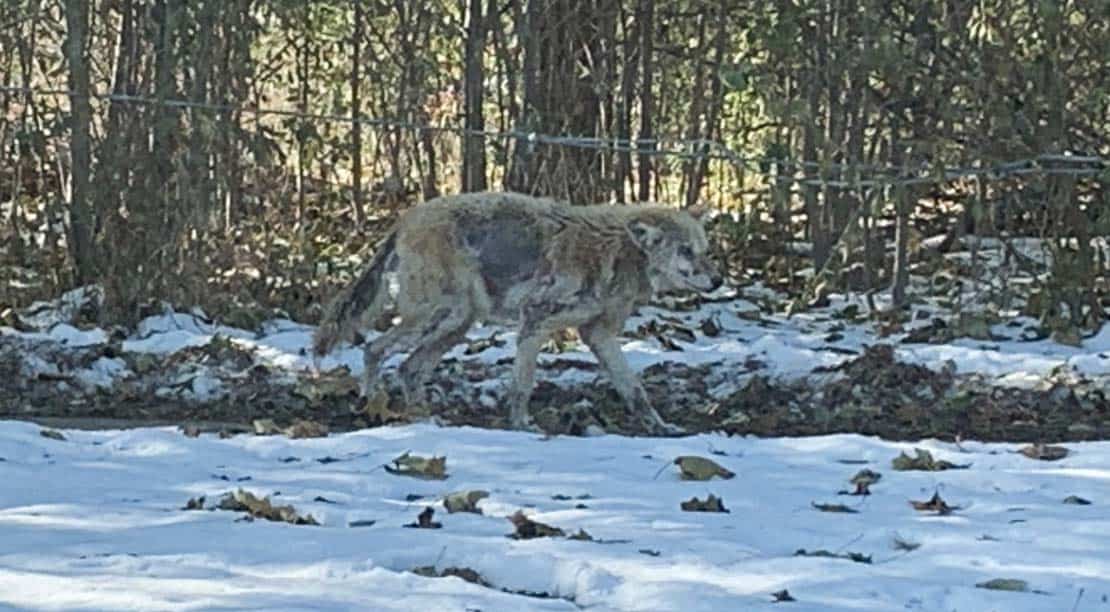Multiple sick coyotes spotted in Mississauga
Published December 3, 2019 at 10:04 pm

The City of Mississauga is appealing to residents for help in wake of multiple sightings of sick coyotes in part of the city.
@citymississauga @MissiNewsRoom spotted this coyote on Southdown Road by the hydro corridor trail around noon #mississauga #Coyote pic.twitter.com/oTTL7JCr7B
— parapparedd (@ReddReddM) November 17, 2019
Mississauga Animal Services says it has been receiving concerning reports from residents in the Clarkson/Lorne Park area following sightings of a couple of mangy coyotes in the area.
Mange is a very painful skin disease caused by parasitic mites that’s characterized by hairless patches of skin that are often covered in sores or thickened, hard, crusty patches. According to the American Kennel Club, It’s common in stray dogs and puppies and is sometimes seen in domestic pets who have been neglected or abused.
“Animal Services responds to calls for sick/injured wildlife and animals posing a risk to the public. We make every attempt to rescue and rehab sick or injured wildlife,” Parathan Mohanarajan, public education officer, Animal Services, said to insauga.com in an email.
Mohanarajan says Animal Services officers have responded to over 30 calls for service in relation to sick/injured coyotes and coyotes posing a threat to the public in Ward 2 since Oct. 1, 2019.
The majority of these sightings took place around the Clarkson Rd, Truscott Rd, and Hindhead Rd areas.
“Our officers continue to go door-to-door in the neighbourhoods in Ward 2 to educate residents and spread awareness. Officers provide strategies on how to deter the coyote activity and how to keep their families and pets safe,” Mohanarajan says.
Mississauga Animal Services is currently coordinating rescue efforts with the Toronto Wildlife Centre and is working to capture and treat the coyotes with mange.
If you see a sick coyote, you can help by calling in real-time sightings to the Animal Services dispatch at 905-615-3000.
Also, coyote sighting reports are tracked by Animal Services and the data is used to study patterns or trends with coyote movement.
“The data also helps us target areas for our ARC (Awareness and Responsibility Campaign) to attend if there is an opportunity for Animal Services to spread awareness and educate the community,” Mohanarajan says.
Once rescued, the coyote(s) will be transported to the Toronto Wildlife Centre to be treated.
Under the guidelines of the Fish and Wildlife Conservation Act once the coyote(s) has been rehabilitated they will be released within 1 km of where they were found. This stipulation is in place by the Ministry of Natural Resources to help prevent the transmittance of diseases such as rabies.
Have you seen a sick coyote in Mississauga?
Cover photo courtesy of Twitter user parapparedd (@ReddReddM)
insauga's Editorial Standards and Policies advertising





